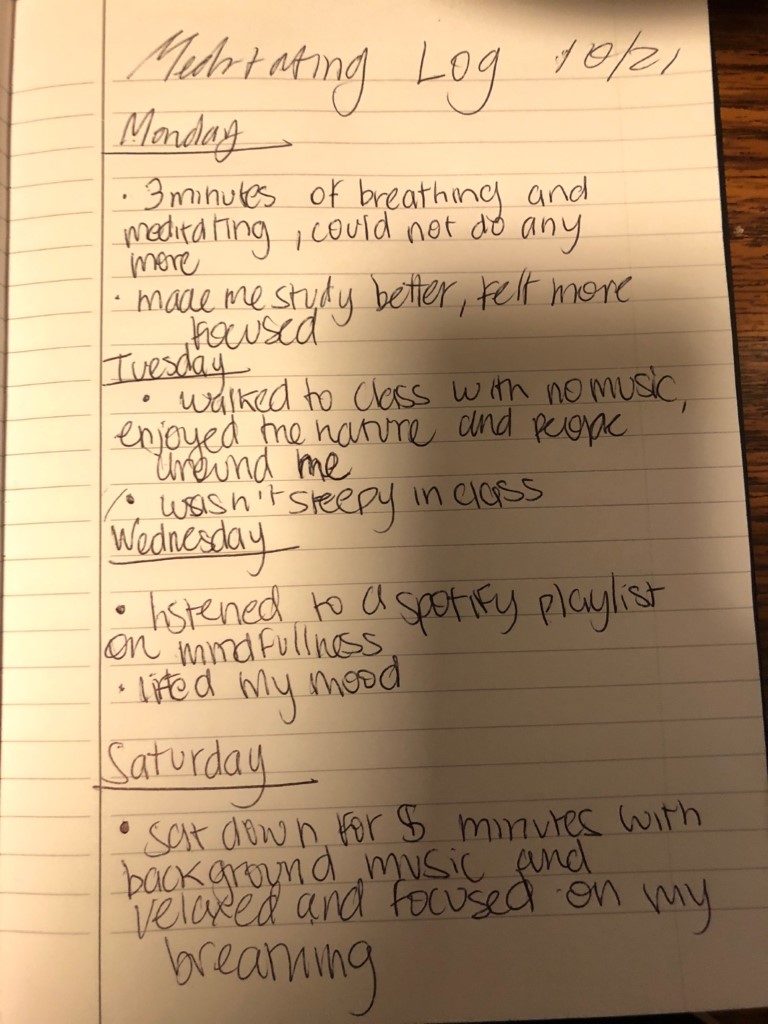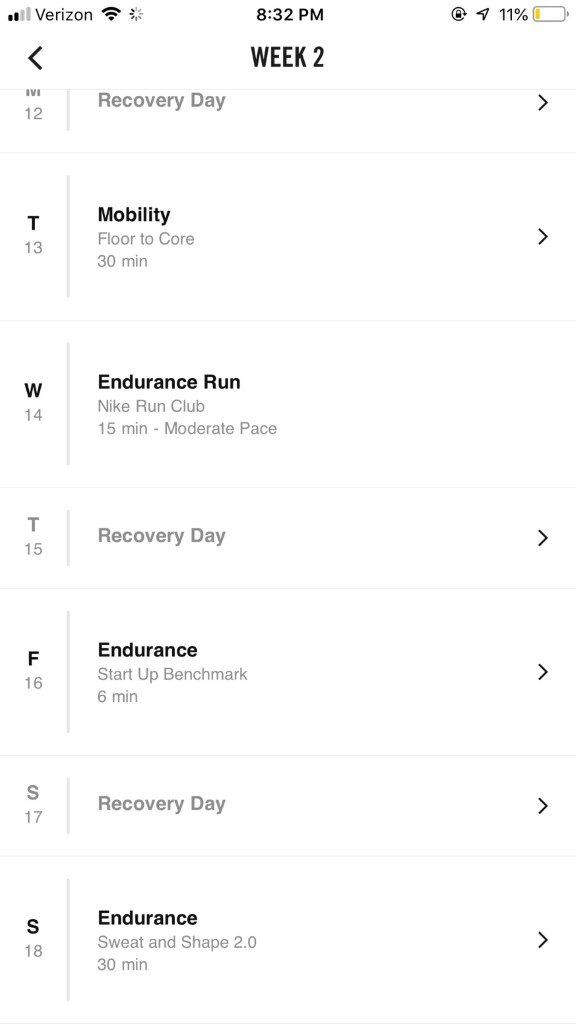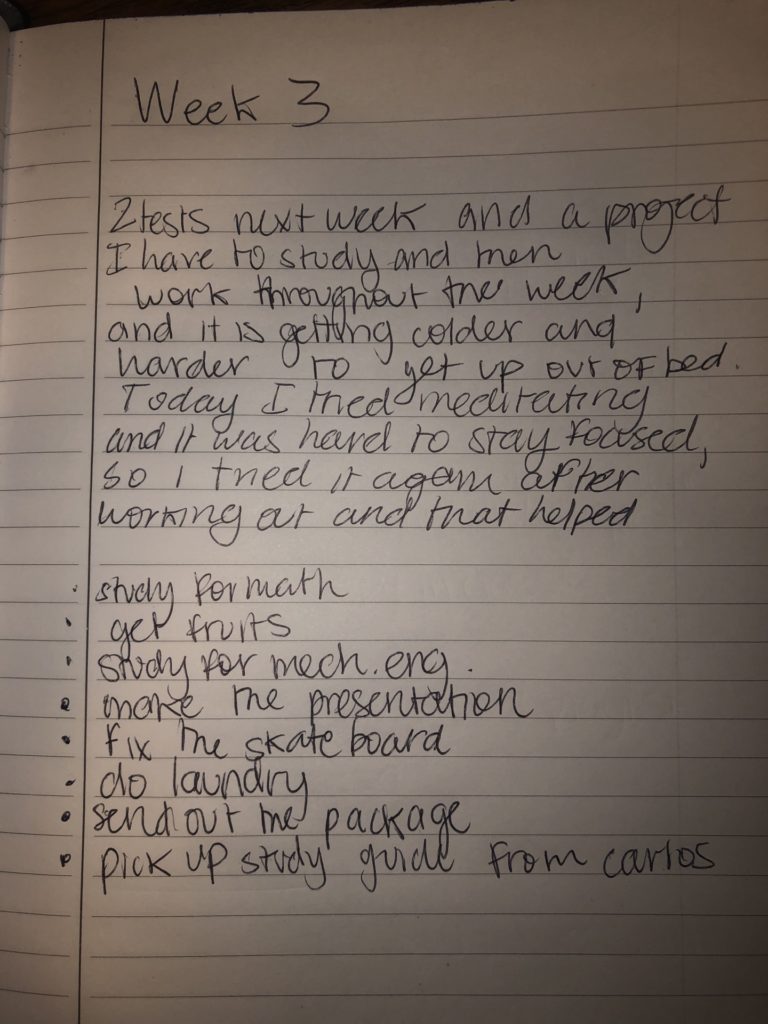“The greatest discovery of any generation is that a human being can alter his life by altering his attitude.” – William James
Do this, do that, study hard, struggle, sacrifice, lose, and then be happy. No. That’s not how it’s supposed to be. The culture we live in today seems to take pride in the struggle of going through the toughest times in our career lives whilst being sad, to then someday hopefully be happy. The thing is, for most of us, being successful is only really achievable if we are happy first, and in this post, I will talk about my experience with finding my happiness first.
WHO AM I?
My name is Pedro Tokushiro. I have moved a lot in my life. Born in Brazil, moved to the US, then Mexico, then Brazil again and back to the US again for high school in California. Through everywhere I have been, I learned that for me to be able to be good in school I had to build a community and be happy first. Since I have just moved to Ohio for engineering school, I was struggling to do well in class, and thought taking this course would be more than beneficial. When picking a book to read, at first, I thought I needed a book that would give me strategies to study, but I realized that our textbook was doing that, so I was looking for something more personal. I came across the “Happiness Equation”, by Neil Pasricha, and then I thought back to every time that I moved, and I realized that I knew how to study pretty well, I just needed to find a way to find happiness in a new environment in order to be happy. I knew reading this book would help me put things into perspective and give me an idea of what I had to do.
SO, WHAT’S THIS BOOK ALL ABOUT?
The book was very intriguing and talked about many ways of living a happier and less stressful life. The main thing that hit home to me was how, in society, everyone views life like this:

But that is so wrong. People go along with this method because they are doing what society has told them for over a century now. I found that I do this myself, as this is how my parents raised me. My father would say that working hard and struggling to get to the top will one day pay off when you have a job and money. However, so many people follow this method, get to where they want to be, and then they just keep setting goals and desperately looking for what’s next. They do this because they are never content. However, the solution to this is right in front of us. Instead of focusing in being successful first, we can switch the order:

With that simple rearrangement, life can become a lot better. If happiness is achieved before success, then we can be content with our lives. “Easier said than done,” I thought as I read this book. However, it’s also not that complicated. In the book, Pasricha details several steps for achieving happiness, and of course not all of them applied to me, but I took the things that did affect me and tried to apply to my life in order to see if I could live a better life in college and hopefully as a result do better in my classes.
TRACKING METHODS?
As I mentioned before, I took what coincided with me the most and put it into practice. He talked about, being yourself, be happy first, do things for yourself, never retire, etc. I wanted to put things into practice in my everyday life. I started with three things:
MEDITATING:
One thing that the book goes over is meditating and mindfulness. At first, I thought no way I am going to sit crossed legged and put my arms up and hum. Then he started talking about mindfulness, and how being in the present brings peace and allows us to be in touch with our current feelings and surroundings. So, I decided I would try it. I realized that with my engineering curriculum and everything going on in school I was not even taking a moment to just breathe, and that is the most important part about meditating. Just relaxing, breathing, and taking a break from everything.
Finding a place to rest in the middle of things was very relaxing and allowed me to get back into my work more focused. I was doing it about 3 times a week, maybe more. I bought a notebook for both a meditating log, as well as my journal, which I will talk about later. I could have an app, as there are many that work very well and there are a variety of options, but for me I find it more satisfying to write it down. Here’s an example of one week:

It was extremely relaxing at first, focusing on the breathing and just being aware of my surroundings. However, as school picked up, I found myself more impatient and frustrated, realizing that I couldn’t even sit down for more than 2 minutes. I powered through kept things concise and more often, and eventually it became a habit. Although it was a challenge, once it became a habit, I started seeing the benefits. I found myself getting into doing homework a lot more focused and motivated.
DO IT FOR YOU:
Born in Brazil, I was born with a soccer ball right next to me, and I have been playing ever since I was a little kid. It relieved my stress and allowed me to be less jumpy and more focused during school. Because I had to move and study engineering, I have had no time to do anything with clubs or sports and found myself being more unfocused and becoming more aware and unhappier with how I looked. I started working out to look better for others but was always frustrated because the results were not showing as fast. After reading the book, I decided to start looking at working out for myself, to calm down and be more focused during school (as scientifically proven exercising can help focus), and looking good for myself, so that I could be comfortable in my own skin. So, I set a schedule for myself and found time throughout my week to be able to work out.

After doing this for a couple of weeks, I found myself finding time to work out almost every day, because not only did I love it, but I was doing every other task so much quicker, that I had time to work out more often than not.
WRITING THINGS DOWN IN JOURNAL:
One very important thing that the book taught me was that everyone has negative thoughts. Everyone has a lot of thoughts actually, and it usually throws us off and makes us very stressed, holding all that information in. For me, in order to get things off my mind I usually like to write it down, because it feels like I am transferring all that information down into paper, and I feel less stressed. Here is an example for one week:

Writing things down felt like it took a weight off my shoulders and made my mind clearer. I realized that it was something that I had to do at least once a week, because there were so many things going on in my head it was hard to organize them unless I wrote them down. It helped clear my mind, and it actually felt like it was easier to meditate as my mind was less crowded as before.
WHAT WORKED? WHAT DIDN’T?
I felt a lot better about myself and saw my grades going up. Placebo? Maybe, but from past experiences I don’t think so. I realized that just these three simple exercises throughout the week were helping me tremendously. Meditating was the hardest of them all in the beginning, but I saw that once it became habit, I found it as a quick way to destress throughout the week. Nearing the end of the semester, I have a much better community and outlook on my college experience.
One important thing that I think that he missed was the social aspect of happiness. Yes, he talks about being yourself and not letting anyone dictate what you want to do, but he does not mention the benefits of having friends and a sense of community wherever you are. For me, in order to make a community I joined different clubs and talked to new people every day. That greatly benefitted me in doing better in school, as I had people around me going through the same things and having people to study and further retain the content we are learning.
WHAT CAN YOU DO?
I think it is safe for me to say that everyone has struggles in life and goes through some period where they struggle with their happiness. Even if what was mentioned in this post may not apply to you, it is important to be aware of what makes you happy, and that it is normal to feel sad. In some cultures, mental health and emotional wellness is not spoken of, and seen as a weakness. Where I come from, the Latin culture views with men who struggle with mental health issues as weak. However, mental health has become much more prevalent in the past century, and it is something that should be talked about. “Expect sadness like you expect the rain,” says the poet Nayyirah Waheed in her acclaimed book Salt. “Both cleanse you.” Everyone experiences sadness. But there are communities that are starting to talk about it, so don’t be afraid to reach out.
